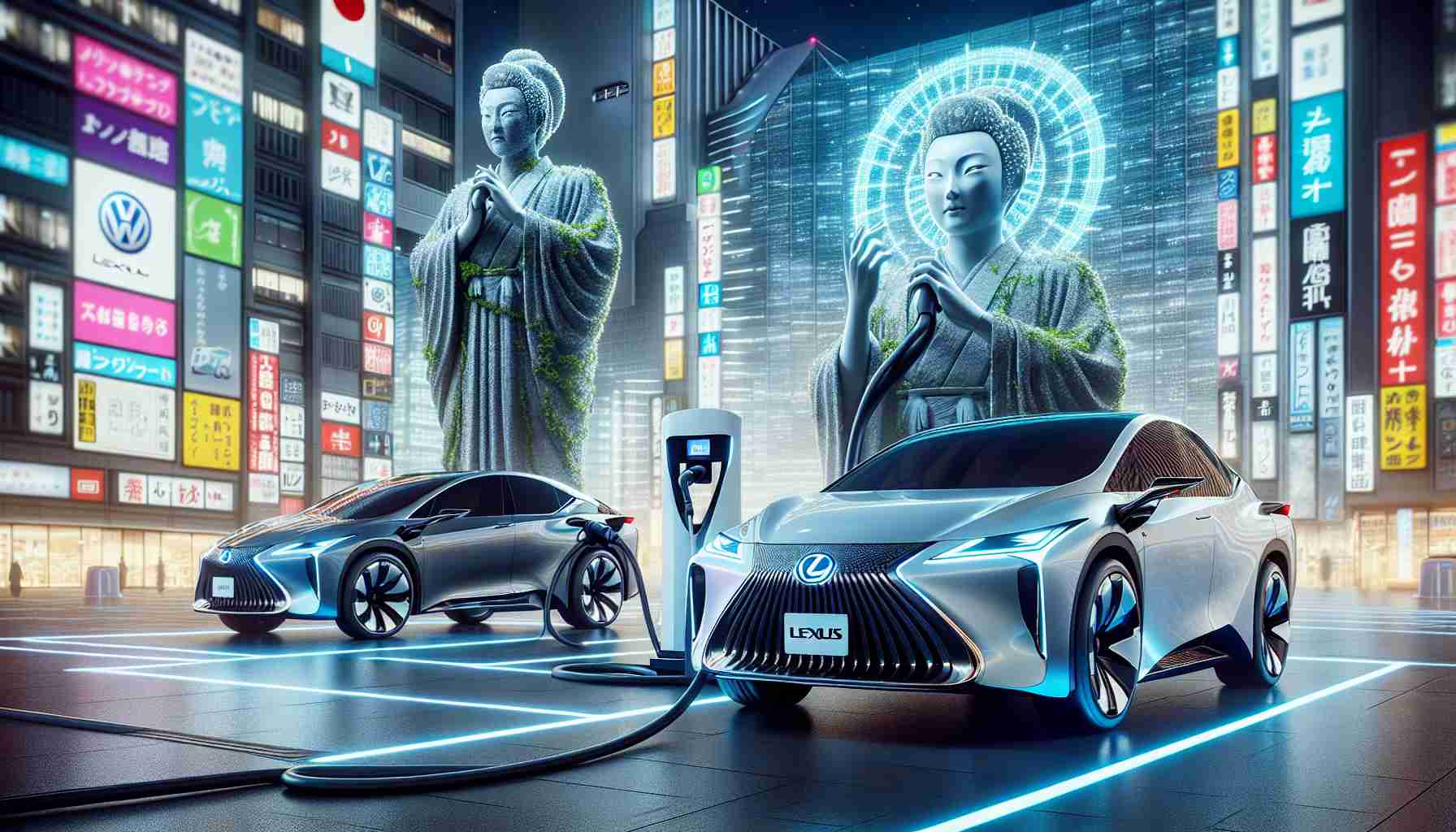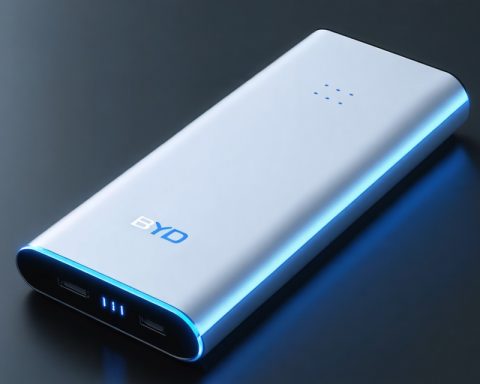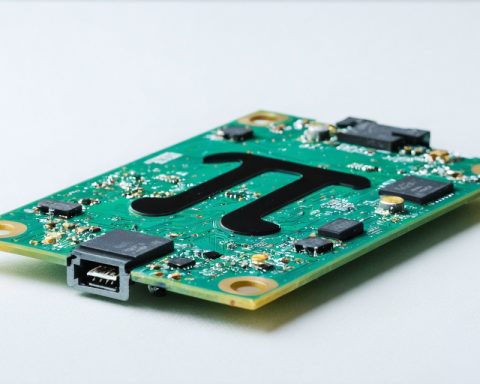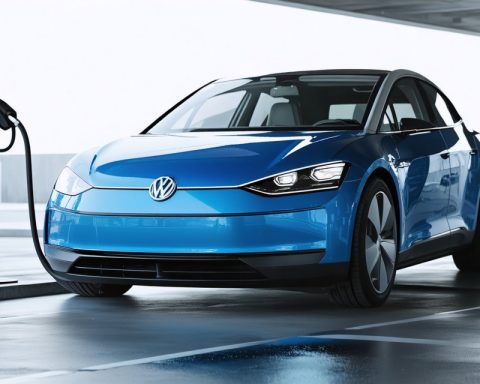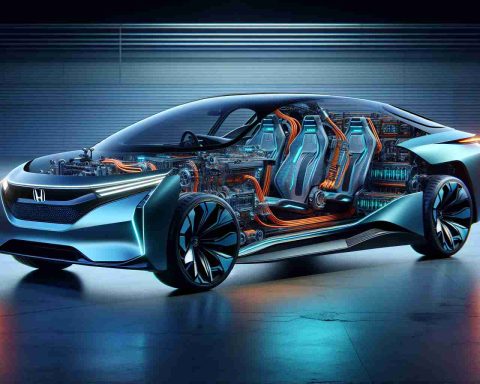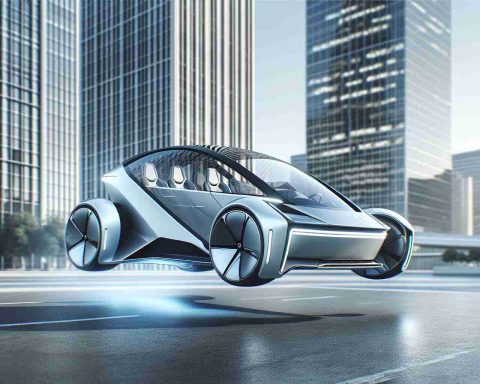- Volkswagen Japan and Toyota have collaborated to enhance the charging infrastructure for electric vehicles (EVs) in Japan.
- Drivers of Volkswagen, Audi, Porsche, and Lexus can access a vast network of rapid chargers nationwide.
- The partnership integrates the existing “Premium Charging Alliance” (PCA) and Toyota’s “LEXUS Electrified Program” (LEP).
- Effortless access to both networks is available through respective apps for members, enhancing convenience.
- Lexus plans to add over 100 charging stations by 2030 to boost accessibility.
- Charging costs include discounts for new car owners and members, with premium options for non-members.
- This initiative aims to make EV charging as easy as parking, promoting a user-friendly ecosystem.
2025 heralds a new dawn for electric vehicle owners in Japan, as two automotive giants, Volkswagen Japan and Toyota, pledge to transform the charging landscape. Their groundbreaking collaboration ensures that drivers of Volkswagen, Audi, Porsche, and Lexus can now seamlessly tap into an expansive network of rapid chargers across the nation, akin to unlocking a treasure trove of energy.
This innovative partnership enriches the existing “Premium Charging Alliance” (PCA) orchestrated by the Volkswagen Group with its impressive 371 locations, and Toyota’s “LEXUS Electrified Program” (LEP), which prides itself on opulent charging sites situated in the heart of bustling metropolises like Tokyo, Nagano, Aichi, and Osaka. The vision extends ambitiously; Lexus plans to unwrap over 100 new stations by 2030, painting a new map of convenience for electric motoring.
The dance of synergy here means members can effortlessly utilize both networks through their respective apps, extending the harmony beyond brands. It’s not merely an agreement; it’s a revolution in convenience. For the PCA and LEP’s loyal patrons, this expanded accessibility means fewer worries about running on empty.
Charging costs vary, with a smattering of discounts available for new car owners and members, spurring a rush to embrace electric freedom. For those standing outside this circle of membership, flexibility remains; Lexus stations open their arms wider, allowing non-member EV users to reserve charging slots, albeit at a premium.
This initiative doesn’t merely plug cars into power but connects brands into a future-focused, user-friendly ecosystem. As these networks interlace, the ease of electric driving in Japan accelerates, steering towards a world where charging an EV is as simple as parking it.
Shocking EV Charging Revelations: What Japan’s Electric Future Means for You!
Overview of the Electric Vehicle Charging Transformation in Japan
In 2025, a monumental shift in the electric vehicle (EV) landscape is occurring in Japan as Volkswagen Japan and Toyota align to revolutionize the charging ecosystem. This collaboration integrates their networks, enhancing accessibility for EV drivers and promoting seamless usability across brands. Volkswagen Group’s “Premium Charging Alliance” (PCA) and Toyota’s “LEXUS Electrified Program” (LEP) lay the groundwork for this development by offering numerous charging locations and promising future expansions.
Real-World Use Cases of the New Charging Networks
1. Cross-Country Travel Made Easy: EV drivers in Japan can now travel farther without the anxiety of battery depletion, thanks to abundant charging stations available through both networks.
2. Urban Convenience for City Dwellers: The addition of more charging sites in major urban areas like Tokyo, Nagano, Aichi, and Osaka supports city residents, reducing congestion and ensuring rapid access to power.
3. Enhanced EV Tourism: Tourists traveling through Japan can confidently rent EVs, assured of accessible charging throughout their journey.
Market Forecasts & Industry Trends
The outlook for EV adoption in Japan is promising, with the charging partnership likely to spur growth. According to the International Energy Agency (IEA), global EV sales are expected to rise significantly by 2030, and Japan will be a key player in this expansion. This network enhancement aligns with broader global trends towards increased EV infrastructure and highlights Japan’s commitment to sustainable transport.
Features, Specs & Pricing
– Charging Infrastructure: Over 371 premium locations in the PCA network and a projected 100 new sites from Lexus by 2030.
– Pricing Flexibility: Membership discounts offer cost-effective charging solutions, while non-members can access the network at a premium.
– App Integration: Users manage their charging experiences via comprehensive apps that facilitate cross-network utilization.
Pros & Cons Overview
Pros:
– Seamless Integration: Highly interconnected networks ease the strain of charging-related logistics.
– Wide Coverage: Enhanced geographical reach benefits a broader user base.
– Future Expansion: Continuous growth in charging locations ensures sustained convenience.
Cons:
– Cost Variability: Potential premium charges for non-members may deter some users.
– Network Overload: As adoption increases, there may be initial stress on infrastructure.
Security & Sustainability
By enhancing EV charging infrastructure, this partnership significantly contributes to Japan’s sustainability goals. Reduced reliance on fossil fuels and increased use of renewable energy sources in charging stations fortify national efforts against climate change.
Furthermore, security protocols embedded in the charging stations and user apps are vital for protecting user data and preventing unauthorized access.
Insights & Predictions
The collaboration heralds an era of simplified electric mobility in Japan. As EV infrastructure progresses, it is anticipated that similar cross-brand partnerships will emerge globally, setting new standards for cooperative ecosystems.
Actionable Recommendations
1. Join the Membership: For EV owners, registering for the PCA or LEP programs can unlock savings and improve the charging experience.
2. Plan Ahead: Utilize apps to locate the nearest charging stations and reserve slots when available, especially if traveling during peak hours.
3. Stay Updated: Keep abreast of new location launches and membership perks to capitalize on emerging opportunities.
For further information on electric vehicles and charging networks, visit the official sites of Volkswagen Group and Toyota.
